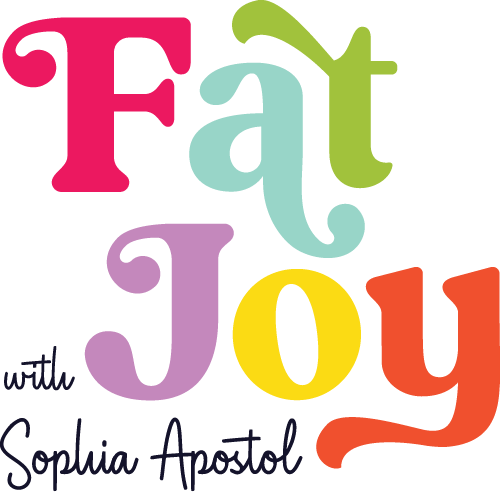Episode 52 with Tracey Lindeman
Endometriosis, Anti-Fatness, And Misogyny – Tracey Lindeman
Show Notes & Full Transcript
Tracey Lindeman’s (she/her) experience with decades of period pain and the complicated, frustrating, and futile-feeling process of getting an endometriosis diagnosis led her to writing “Bleed: Destroying the Myths and Misogyny in Endometriosis Care.” Tracey and Sophia share their own unique experiences of moving through the medical system’s anti-fat bias and misogyny, and Tracey offers two suggestions for how we can better advocate for ourselves in any medical situation.
Tracey Lindeman is a longtime freelance journalist and the author of the bestselling book, “BLEED: Destroying Myths and Misogyny in Endometriosis Care” (ECW Press, 2023). She is from Montreal and currently lives in western Quebec with her partner and her cat, Toast.
Mentioned in this episode: therebelliousuterus and “What we don’t talk about when we talk about fat” by Aubrey Gordon.
Please connect with Tracey through Instagram and her website.
This episode’s poem is called “From the First Water is the Body” by Natalie Diaz.
After recording the interview, Sophia asks each guest 10 unexpected, unrehearsed questions designed to go even deeper. Check it out by subscribing through Apple Podcast Subscriptions or Patreon for as little as $2.
You can connect with Fat Joy on our website, Instagram, and YouTube (full video episodes here!). Want to share the fat love? Please rate this podcast and give it a joyful review.
Our thanks to Chris Jones and AR Media for keeping this podcast looking and sounding joyful.
A Fat Joy Podcast Book Review
Bleed: Destroying Myths And Misogyny in Endometriosis Care
Written by Tracey Lindeman
Respectfully reviewed by A. Cavouras
Book Summary
On page 105, Lindeman uses the descriptor ‘trustworthy patient,’ something that stuck throughout my reading of this book. Amid the layers of thorough investigation and thought provoking analysis of every aspect of endometriosis, is the story of the author’s journey to be heard. Using her own decades-long medical history Lindeman peels back the layers of the medical system and names what so many know to be true - the system is biased in every possible way, guarded by gatekeeping doctors that society holds on a pedestal. As a patient you will have to prove you deserve care and you will need to do it over and over again.
In turn both educational and emotionally validating, Bleed takes the reader into the horrendous history of gynaecology to outline the foundation of why modern medical care is so laden with misogyny. The stories shared within bring to life the evidence presented, leaving the reader only with facts laid bare. Bleed is a book of feminist importance beyond its scope.
What’s Special About This Book
I promise you do not know what awaits you in this book. I promise that you do not need to have endometriosis to find meaning, validation, and stone-cold rage within these pages. I promise you don’t need a uterus, you don’t need to identify as a menstruator, or even as a woman. Clearly, this book serves as a call to action for equal rights, treatment and access, but beyond that it is a demand for respect. Delivering equal parts diverse narratives from endo survivors and rigorous journalism, Bleed is a book full of truth.
Validating Lines for Your Heart, Your Mirror, or Your Twitter
P.106
“Researcher after researcher after researcher has found what women know to be true: that our pain is not taken seriously, sometimes to the extent that we’re accused of exaggerating or even outright lying. There is so much evidence of this, and yet the issue is still treated as a conspiracy theory within medicine. The fact of the matter is that women are too often sent to the psychologist’s office, while men get sent home with painkillers.”
P.108
“Fatness is a wedge that divides patients and practitioners because it is seen as a personal failure to control oneself, and self-control is used as a metric by which to measure worthiness of care.”
P. 270-271
“I am worthy of the joy and the awesomeness these memories represent, just as I am worthy of the hopefully thousands more memories to come.
Yes, you and I have suffered enormously. But suffering doesn’t have to be everything.
We can’t forget to live.”
End Note
Fatphobia. Doctor bias. Medical system colonial history leading to modern misogyny. Doctors on a pedestal. Medical gaslighting. A trustworthy patient.
These things swirl in my mind as I type. I am left angry by the time the prologue is done. By the time this book is over I have talked and thought about it incessantly. I am forever changed as a woman and as a person by Bleed.
Respectfully reviewed by A. Cavouras (a.cavouras@gmail.com)


